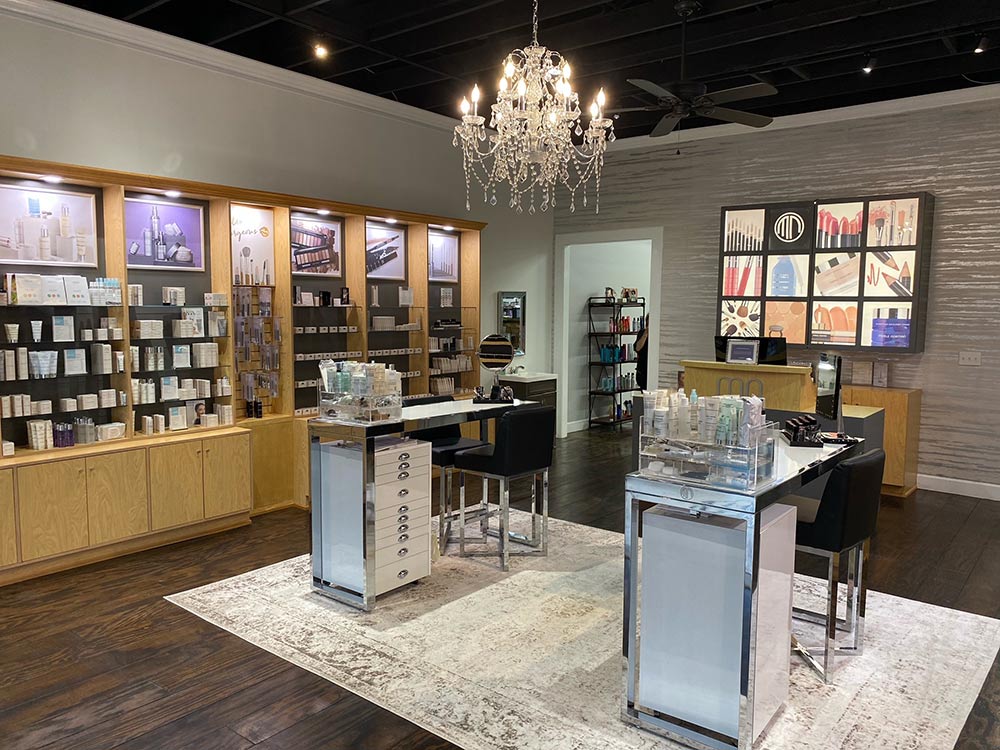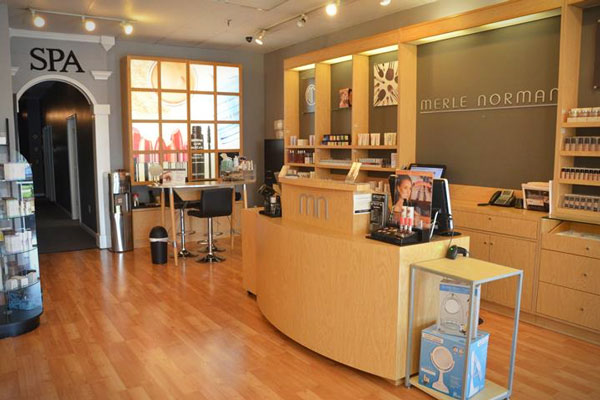How to Pick the right beauty franchise
A guide to starting a cosmetics business you can grow
If you’re looking to open a beauty franchise, chances are you’ve spent some time in the local mall and seen the lash place, the hand cream bar, or that glitzy flat-iron display. Like all industries, though, the cosmetics business has faced unprecedented challenges.
Beginning with 2008’s “great recession” and continuing through the pandemic, the industry contracted–dropping from an all-time high of almost $53 billion to $49 billion this year. The areas most affected: beauty bar kiosks in the mall.
One sector of the beauty business is still growing, though, and that’s retail cosmetics as explained in Business analytics firm Statista.
“In recent years, consumers have been spending higher levels of disposable income on cosmetics than they had in the past,” Statista reports.(1) “Unfortunately, the global financial crisis put a damper on the market for some years, making more affordably priced merchandise and do-it-yourself at home products key in the beauty market.”
In spite of the industry’s downturn, it’s still a good investment–if you pick the right beauty franchise. However, before you make your decision, it’s important to take a moment and understand the landscape.

Unpacking the beauty business
When you think “beauty business,” what comes to mind? Obviously, there are the cosmetics businesses. Aestheticians also come to mind. Perhaps boutique salons offering Botox and “permanent makeup” are on the list. Those dozens of competing concept mall kiosks also fit the bill. (“May I borrow your hands?”)
Over the past thirty years, the beauty industry has grown increasingly fragmented into ever-smaller niche businesses. Many beauty franchise concepts operate on a single-product or single-service model. Others seem to be all over the map, trying to compete in every niche, every service, all at once with business models that are forever changing.
Overall, there are a few broad categories in the industry. Here is a brief guide to each segment:
One-stop Beauty Products and Services: These large-footprint, high-volume franchise concepts rely on a customer coming to the store, having eyelashes plucked, getting hair extensions, and sitting for a make-up tutorial before buying hundreds of dollars worth of products. These businesses are labor-intensive with high overheads, and growth is driven by new products and services to an existing clientele.
Single-Product or Single-Service Kiosks: These beauty business concepts take the idea of “small business” to the extreme. They are built around an open-air kiosk model in shopping malls or other busy retail centers, and they typically require only a couple of employees to operate. Providing services like eye-brow threading or selling a single product, such as a high-end facial scrub, these businesses rely on walk-by traffic for every sale.
Beauty Supply Retailers: A retail operation with a built-in client base of beauticians, cosmetologists, and hair professionals may seem like a great opportunity. However, and contrary to what their name may imply, the local beauty supply company doesn’t cater to beauty professionals. They’re primarily retailers focused on selling “salon-quality products” to consumers. Given the crowded space for beauty supplies, which are widely available in salons and mainline retail stores, making sales growth complicated.
Aesthetic Services Professionals: Frequently, dermatologists or other boutique salon concepts will enlist a franchise brand to help spur new business and product sales. These products range from lip fillers to “non-surgical facelifts.” Opening a business such as this frequently requires advanced training in healthcare or hiring healthcare professionals to dispense products or administer treatments, raising overhead and creating record-keeping headaches.
Cosmetics Retailers: The original beauty business, cosmetics retailers focus on selling makeup, skin care products, and select hair care equipment and products. Cosmetics professionals provide makeup tips, information about new product lines, and assistance to customers hoping to refresh their look. These businesses vary in size and staffing requirements, as well as cost of operation.
As you can see, the beauty space is crowded. Yet, only one segment of the cosmetics industry is uniquely positioned to take advantage of both the recent changes to the way consumers shop and what they’re shopping for.
Cosmetics retailers are poised for growth
In previous years, customers buying make-up fell into two groups: buyers who picked up their makeup at the grocery store or pharmacy, almost as an afterthought, and those consumers who sought out cosmetics at major department stores like Macy’s or Dillards. However, the landscape has changed dramatically in just the past few years, as CNBC’s Nia Warfield points out.
“Social media has bolstered the success of specialty stores and cultivated a number of billion-dollar upstart beauty brands that are going head-to-head with well-established players like Estee Lauder,” Warfield writes. (2) “As retailers like Ulta Beauty and Sephora have won over shoppers, the former anchor of the cosmetics industry–the department store–has faltered.”
This titanic shift opens up a huge opportunity for entrepreneurs looking for a way into the industry. Beauty franchise opportunities like Merle Norman tap into the consumer’s move away from the department stores. That’s not the only benefit of opening a beauty franchise, either, as you’ll see.
Customer loyalty to beauty products drives growth
When customers find a beauty product they like, they tend to stick with it for decades. That’s the assessment in a recent GCI Magazine report.
According to GCI, more than 50% of beauty business customers report they are loyal to a single brand.(3) That number remains steady even when the consumer is looking to change products. They may want a new foundation, but if they like the foundation they’re currently using, they’ll seek out a new product from the same provider.
When combined with the shift away from mainline retailers, customer loyalty has helped drive cosmetics business sales up by more than 6%; additionally at this time, the overall beauty industry has seen an almost 10% decline.(4) That means now more than ever, consumers are turning to retail beauty franchise opportunities like Merle Norman for the products they want.
Online sales are driving beauty business growth
When the global pandemic struck, all retail sectors saw a marked decline in sales. However, for the beauty business, the decline was softened by a significant increase in online sales. Industry research firm NDP Group singled out self-care products–skin care, makeup, nail products and more–as the drivers for a spike in online sales.
“Online sales of self-care products were strong in in Q1 2020, up 24% from 2019…with double-digit increases for makeup, skincare, fragrance, and hair products,” writes business publisher DMS.
Beauty franchise opportunities with significant online components were uniquely positioned to maximize the shift to online sales due to the pandemic. Merle Norman’s ecommerce platform is in direct partnership with its qualified franchisees and Corporate handles all the marketing shipping and shares 100% of the wholesale revenue and leads with its partner franchisees. As consumer patterns continue to change in coming months and years, beauty businesses like Merle Norman will continue to benefit from being ready for the online revolution.
Social media is the new frontier for beauty franchise businesses
Moving into the future, a beauty business will need to connect directly to consumers. Social media is the conduit cosmetics companies will utilize. The trend has already begun, as social media influencers have spurred the development of multiple billion-dollar brands.
As Generation Z enters the marketplace, the role influencers play will increase immeasurably. Beauty businesses like Merle Norman have been on the forefront of the social media revolution, and with robust social media programs, franchise owners benefit from the fusion of vibrant influencer campaigns and online sales.
Ultimately, companies like Merle Norman have the brand loyalty, the quality products, and the online presence new beauty business owners will need to grow in a competitive and fragmented industry. When you are settling on what beauty franchise to open, consider your future and how you’ll be positioned for success.
Join Merle Norman franchise as your beauty business
If you’re ready to get into the beauty business with Merle Norman, reach out to one of our expert franchise sales consultants to start the process. Or, for more information about the Merle Norman franchise opportunity, download our free, Franchise Information Report.




Comments are closed